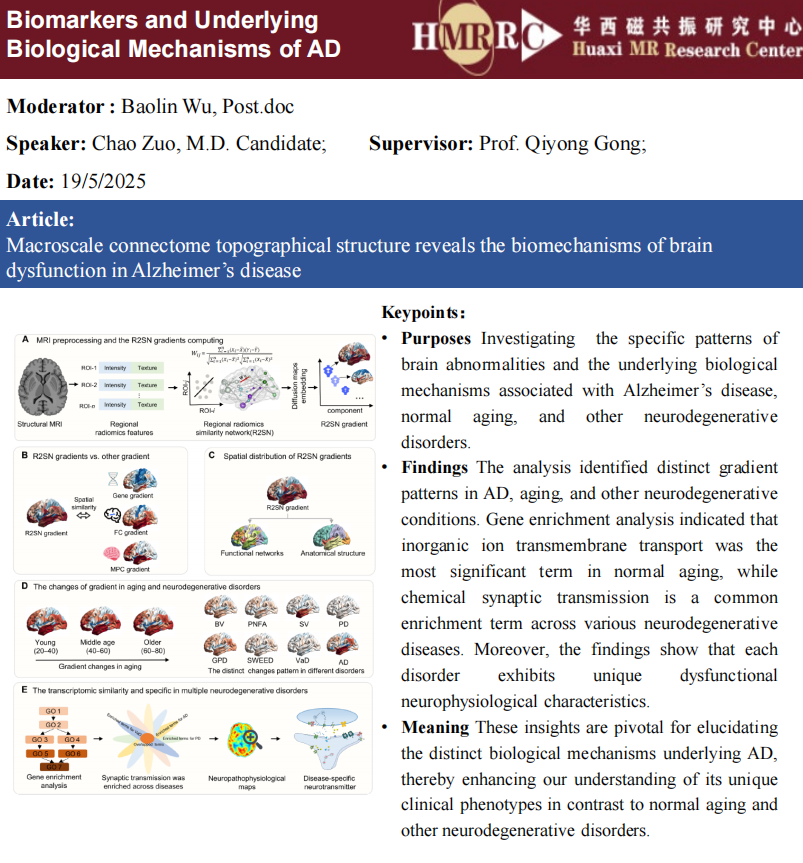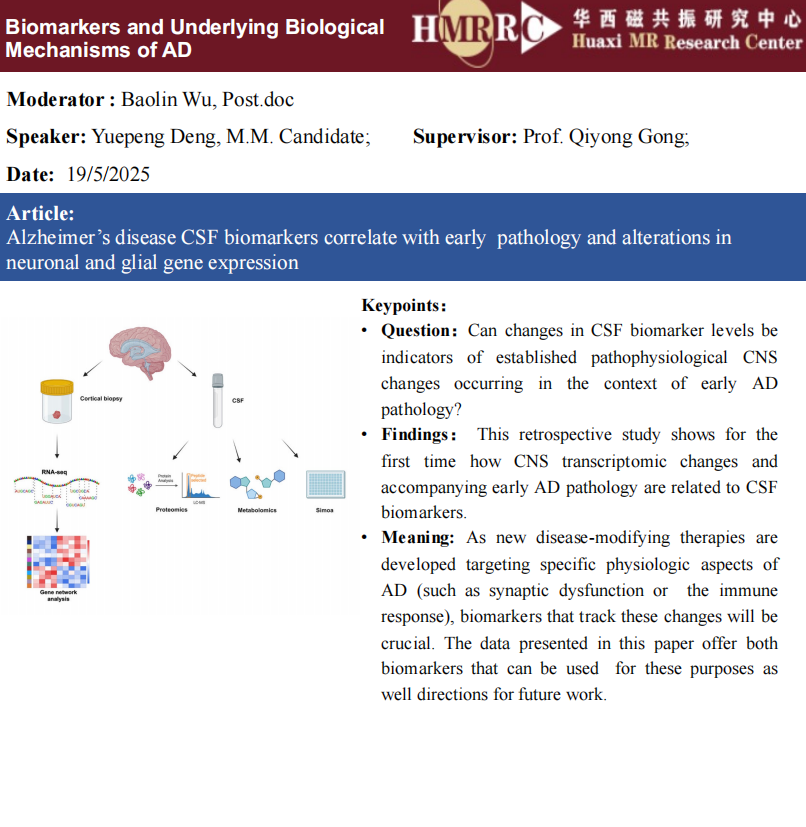
Biomarkers and Underlying Biological Mechanisms of AD.
Topic: Biomarkers and Underlying Biological Mechanisms of AD.
Supervisor: Prof. Qiyong Gong
Date: 19/05/2025, 14:00
Location: The lab of HMRRC (10011, the 8th Teaching Building)
Speaker 1:Chao Zuo, M.D. Candidate
Title: Macroscale connectome topographical structure reveals the biomechanisms of brain dysfunction in Alzheimer’s disease

Keypoints:
Findings- The analysis identified distinct gradient patterns in AD, aging, and other neurodegenerative conditions. Gene enrichment analysis indicated that inorganic ion transmembrane transport was the most significant term in normal aging, while chemical synaptic transmission is a common enrichment term across various neurodegenerative diseases. Moreover, the findings show that each disorder exhibits unique dysfunctional neurophysiological characteristics.
Meaning - These insights are pivotal for elucidating the distinct biological mechanisms underlying AD, thereby enhancing our understanding of its unique clinical phenotypes in contrast to normal aging and other neurodegenerative disorders.
Speaker 2: Yuepeng Deng, M.M. Candidate
Title: Alzheimer’s disease CSF biomarkers correlate with early pathology and alterations in neuronal and glial gene expression

Keypoints: